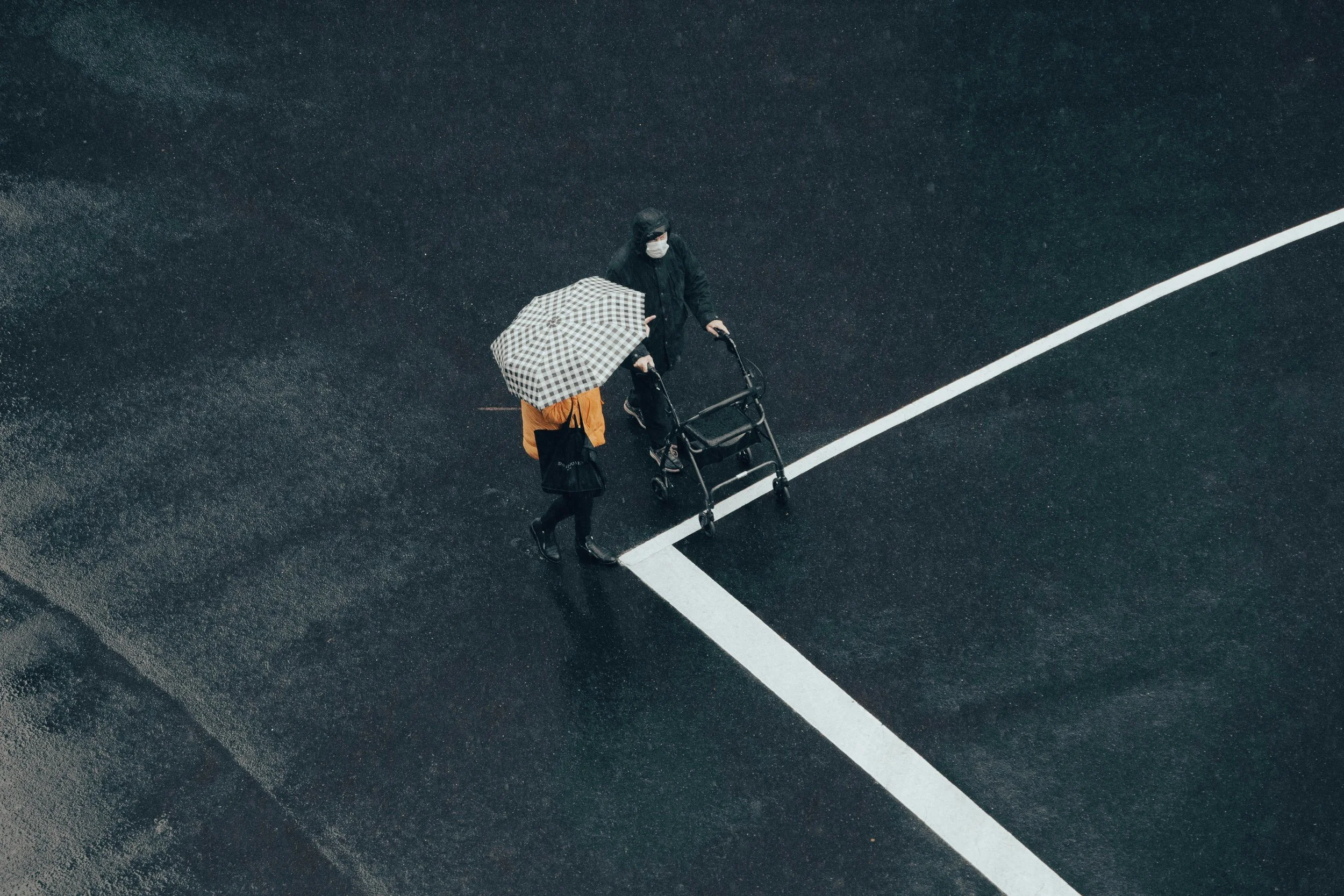You Don't Look Sick
When your illness isn't visible to the outside world, there's a loneliness attached to it that can leave you feeling isolated. It's easier, after all, to pretend to appear normal, to look the same as everyone else. Or, at least, it seems easier.
By Featured Writer, Roxie Key.
Not so fun fact: there are approximately 1.3 billion people across the world living with a disability. It is thought that up to 70% of all disabilities in the UK aren't visible.
It's time to speak up about invisible illnesses and hidden disabilities. Because when your illness is there for the world to see, you may find that people are kind, moving to make space for your wheelchair, stepping out of the way of your walking stick, giving your guide dog space.
They see your struggle. They see you.
But when your disability lies hidden beneath the surface, things are different. You look like any other person, and no one gives you a second glance.
What then?
When your condition hides from the world behind a mask of normality, concealing itself within your body or mind, it remains unseen. You may appear the picture of health, your inner struggles invisible beneath a veil of wellness.
But you're not well.
Whether you have chronic pain, autism, extreme fatigue, a mental health condition, sensory processing difficulties, cognitive impairment, hearing loss, or any other illness that's not obvious to others, you may talk about it, or you may choose to hide it.
You might decide to hide your disability out of fear. Fear of judgment, of stigma, of being misunderstood.
You may not make a conscious decision to hide your condition. You're fatigued enough, without all the explanations, the answers to questions you have no desire to answer.
When you say you're exhausted, and they nod knowingly, saying "oh, me too!" You want to scream because they just. Don't. Get. It.
And how could they, really? It's no wonder it's easier to hide sometimes.
When your illness isn't visible to the outside world, there's a loneliness attached to it that can leave you feeling isolated. Because if you're not talking about it, and it's not obvious to others, you're dealing with it alone. It's easier, after all, to pretend to appear normal, to look the same as everyone else. Or, at least, it seems easier.
Talking can help; finding people who understand how it feels to have a non-visible illness or hidden disability is better. In any life, finding your tribe, to be heard, to be seen, is as essential as oxygen.
But what about when you need help, understanding, or time from everyone else, in this world that is not designed for you?
Long queues that wipe you out and exacerbate your chronic pain.
Demanding jobs that don't cater to your complex needs.
Job interviews that only a neurotypical person could possibly excel in.
The sensory overload of gyms, supermarkets, and airports.
Social norms and expectations that just don't come that easily to you.
The fear of a flare-up when you’re away from home.
Disapproving looks when you use an accessible toilet or disabled parking bay, making you doubt whether you are ill enough to use these facilities.
Assumptions can run wild, and you want to scream, "I'm ill, OK? I might not look it, but I am."
But you don't.
You wish more people would take the time to learn, to understand, to even have a vague idea of what it's like to have a non-visible disability or hidden illness.
And so do I.
As someone who has lived with crippling anxiety and a list of undiagnosed ADHD symptoms as long as my arm, I get it.
The love of my life has Crohn's Disease, and I've seen firsthand how debilitating the exhaustion, chronic pain, and brain fog can make everyday tasks feel like moving mountains. But she puts on a brave face for everyone else. She doesn't want people to think she's lazy or faking it.
My beloved auntie had Multiple Sclerosis. On a good day, she looked as healthy as the next person. On a bad day, she couldn't get around without a walking stick or wheelchair. My friend has diabetes, and it has altered his life in unimaginable ways. But you wouldn't know from looking at him.
Now throw into the mix the lack of understanding and empathy from people who've never experienced anything like this, and not knowing how to even bring it up with the healthy people in your life.
It's no wonder you're exhausted.
Only by opening up conversations about hidden disabilities and non-visible illnesses can we bring about the change we so desperately need.
Things are happening. The shift from "disabled toilets" to "accessible toilets", and the "not every disease is visible" signage. The Hidden Disabilities sunflower lanyards. Quiet areas in schools and shopping centres for people with specific sensory needs. This is all fantastic, but we need more. We need workplaces to educate and facilitate. We need people to take the time to learn how they can help. We need to open up the conversation with everyone, everywhere.
If you're reading out of curiosity – thank you. I have included a list of resources and further reading to enhance your knowledge, understanding and ways of thinking.
If you're reading this and you have a hidden disability or non-visible illness, know that you are strong. You are resilient. You are brave.
And I see you.
Further Reading:
Hidden Disabilities Sunflower Lanyard Scheme
Living with Non-Visible Disabilities
https://disabilityunit.blog.gov.uk/2020/12/17/living-with-non-visible-disabilities/
Not Every Disability is Visible
Coping with an Invisible illness
https://www.verywellmind.com/what-is-invisible-illness-you-dont-look-sick-5119873
What is Spoon Theory? And Why Is It Important?

